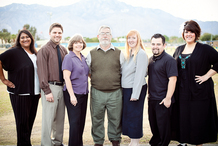 One of the best parts about working in my school district is the collaboration, publishing, and presenting I get to do as part of the www.AppsInClass.com team. We began our journey as a group of lead learners in the PSUSD iPad Trailblazer Program, and we've ended up becoming all-around technology #EduGeeks who just can't seem to stop! We've grown into our own as model classrooms, technology advocates, teacher trainers, and publishers of content. As a professional journey, it's not half bad. As a personal one? Priceless. Three members of the AppsInClass team were chosen to pilot our district's student-centered Bring Your Own Device (BYOD) pilot for the 2012-2013 school year: John Stevens, Mike Cloutier, and myself. Our pilot was quite successful, and as a result, Mike and I were asked to work with two other members of the AppsInClass team (Lee Grafton and Eddie Rivera - both Instructional Technology Specialists), to put together a training series to prepare teachers to make the shift to a BYOD environment, as well as utilize other cutting-edge technology to elevate the pedagogy in PSUSD classrooms. This coming academic year, our district plans to roll out some BYOD classrooms at every secondary school. Purchasing will be concentrated in provide supplementary devices to flesh out each sanctioned BYOD classroom, as well as increase the student-technology ratios at the elementary level. As anyone who has ever written a tech plan or rolled out a new tech program knows, professional development is essential. The best P.D. is relevant, practical, hands-on, and teacher-driven, so that's just what our district asked us to develop and present/facilitate. Our district had already received a DigiCom grant to provide a four day digital storytelling workshop with the fabulous Bernajean Porter (DigiTales). I was lucky enough to help facilitate the first two days of the workshop, which was such an honor and a pleasure, before our own training series began. From that point, we offered eight additional days of training on each of the following subjects:
All of the workshops were offered on a rotation basis, so it was possible to take all six workshops within the ten day window. Training began the week after school dismissed for the summer, so most teachers seemed to view the content as something they could implement right away in September when the new academic year will afford them a fresh start. Our intent was provide multiple entry points for a variety of teacher technology skill levels, and the feedback we received indicates we were successful in that mission. Some of our classes, such as Advanced Flipped Classroom and iTunes U/iBooks Author Content Creation were geared toward teachers with mid to high-level tech proficiency. Often, it seems that advanced tech teachers get left out of the development equation, so we wanted to do them justice as well. Here are a few tweets from teachers who attended workshops: In every session, we emphasized the importance of Twitter as daily, personalized P.D. and we promoted EdCamp Palm Springs like crazy, which resulted in an initial sell-out of tickets and gave us the opportunity to open up fifty more spots! Teachers walked away with hands-on experience using device agnostic tools for mixed platform classrooms, flipped lessons/units they'll be able to utilize in September, and iTunes U courses they developed to structure project-based learning. Teachers were building websites, screencasting, and beginning to publish their own content with iBooks Author, too. What a phenomenal two weeks of learning!
Overall, I think the 10 day Technology Bootcamp was a huge success. Most encouraging to me was the knowledge that teachers in my district are truly enthusiastic about leveraging more student-centered technology in their classrooms to enhance learning. In every session, there was an almost palpable undercurrent of energy and excitement as doors to new pedagogical opportunities opened and professional horizons expanded. Now, as I sit here writing this blog post, I feel an overwhelming appreciation for the AppsInClass team, Palm Springs Unified, and all of the teachers who gave up a portion of their summer vacation to edge a little closer to #EduGeek. What kind of professional development have you been able to participate in lately? What makes good P.D. from your standpoint? Continue the conversation by commenting on this post or hit me up on Twitter @Packwoman208.
1 Comment
I have a confession. It won’t come as a surprise to anyone who really knows me, but… I’m sort of a geek. If I was put on trial to determine whether or not my geekiness is legitimate, there would be plenty of evidentiary support. For example, instead of eating lunch with friends in junior high, I would take a floppy disk into the lab full of Macintosh Performa computers and work on writing my first novel. I never really made much progress. If I’m honest, I think I just liked the experience of typing and being able to help my peers understand the difference between “save” and “save as.” In high school, instead of reading issues of Cosmo magazine, I decided I’d rather teach myself to code websites. The content of my first website was limited to all of the reasons I adored the Backstreet Boys, but I loved the process of coding almost as much as I liked to draw hearts around Howie D’s head… And in college, my friends and I decided to make a television show for fun. We thought it would be great to produce an original sitcom with the intent of getting it aired on the community public access channel. We cast the show from amongst our friend base, checked out the super cool equipment we needed from the campus IT department, and had a blast filming our first episode in two feet of snow. (Thanks, Wazzu, for the quality tech you made available to students. “World class, face to face.” Holla!) I don’t think we finished very many episodes, but that is the first time I can remember editing raw footage into a cohesive whole to tell a story. Now, I teach my students to do that – and I have to say…the tools have definitely improved! In light of my own personal geekiness, I guess that’s why I tend to take exception to comments I sometimes receive from other professionals (and yes, even colleagues). Here are some examples:
You may have heard similar comments at your school site. These are prevalent attitudes toward technology integration that can be found all over the place in our profession. As part of the AppsInClass team and a technology leader in my district, I think part of my job description includes being an advocate for the purposeful use of student-centered technology in the classroom. I often feel like shouting my favorite Billy Joel lyrics at the top of my voice:“We didn’t start the fire! It was always burning, since the world’s been turning!” It is rather shocking to me how many educators view most forms of technology (even something as simple as a web 2.0 tool) as too crazy-new-scary to use. Sometimes I need a pep talk just to maintain the forward momentum of my advocacy. Here’s what I watch when I need encouragement: Now that we’re all encouraged, let’s take a look at some resources we can use to address each one of the arguments from above. 1. "All of this new technology drives me crazy! It’s too hard to learn." Sounds like this person needs some resources! Let’s start them out with some easy to integrate iPad apps, shall we? And how about some great web 2.0 resources with video tutorials? Go to the Web 2.0 section of this website. Oh! And how about an iTunes U course that includes an original iBook to get them started? Check this AppsInClass iTunes U course out! 2. "You’re a tech person. Of course you want to advocate it." Guilty as charged. You are right, I am a tech person, and here’s why you should be, too: Watch this. 3. "Your students can do that, but mine can’t." Being limited by the expectations of others sucks. My students tell digital stories and that teacher's students can, too. How about an iTunes U course that includes an original iBook that details exactly how to scaffold the digital storytelling process from beginning to end? Subscribe to Digital Storytelling: Film Challenges. Or, would you like some easy to use digital storytelling apps your students can figure out how to use on their own? Check it out: 4. "Technology is for students to use at home and has little impact on my lesson." Our students are digital natives who need to graduate with a solid understanding of how to search the internet effectively, judge information credibility, consume media responsibly, engage in digital citizenship faithfully, and produce media creatively. How about a video to show you just how essential technology is to our world today? 5. "People have been teaching without technology for years and kids managed to learn just fine."
As a passionate educator, a lifelong learner, and someone who wants to make a difference in the lives of students, why wouldn’t you want to leverage every tool possible to enable student success? Whether you see technology as one more thing you have in your professional “grab-bag” of strategies, or whether you see technology as the be-all-end-all of education, it is part of our world today. Technology isn’t going anywhere. We’ve got an entire generation of kids who are growing up geek. So: Tech up, rock out, and get your geek on, already. Join us. |
Author: Jessica PackCalifornia Teacher of the Year. CUE Outstanding Educator 2015. DIGICOM Learning Teacher Consultant. 6th Grade Teacher. Passionate about gamification, Minecraft, digital story-telling, and fostering student voices. Download:Archives
June 2020
Categories
All
|
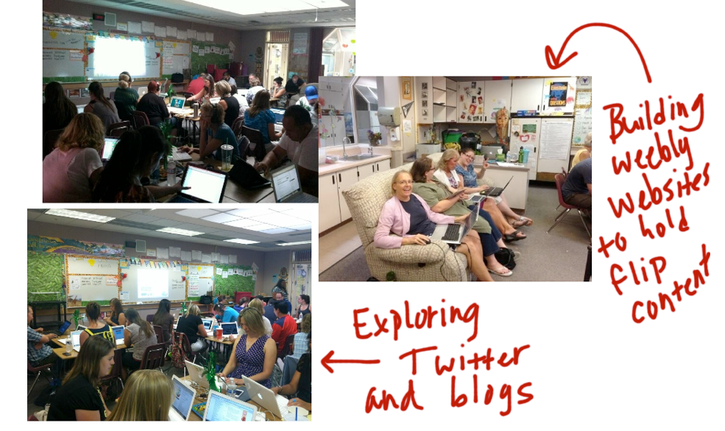
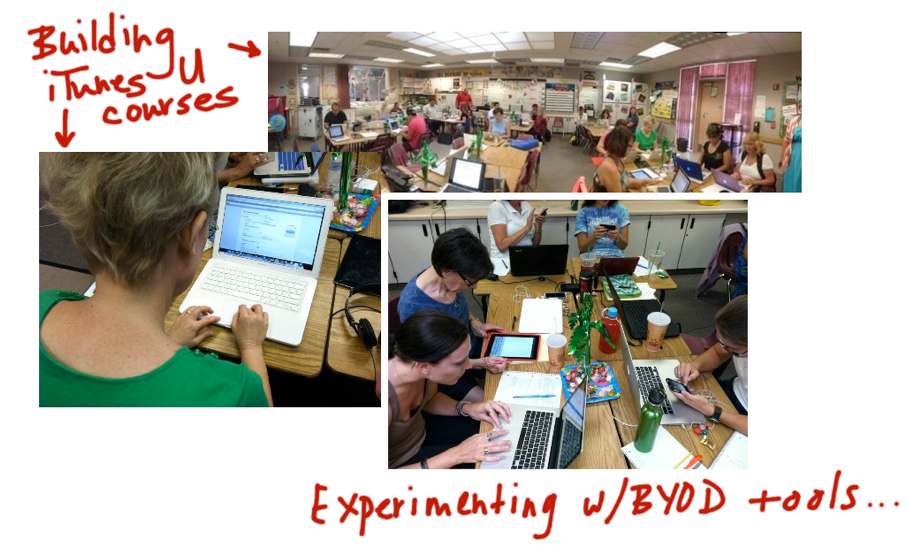
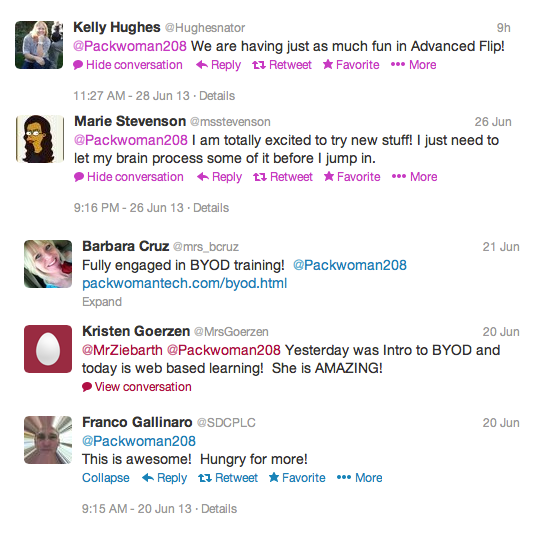
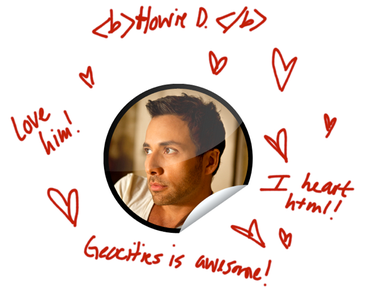
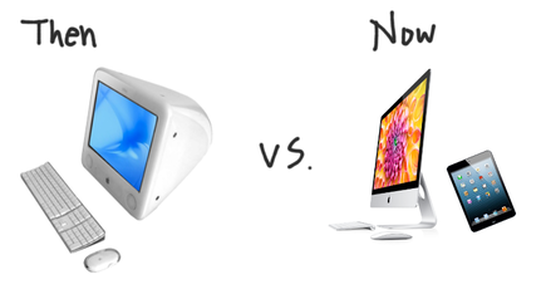
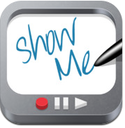
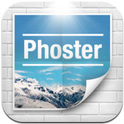
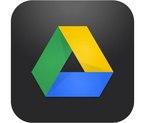
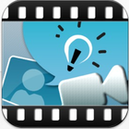
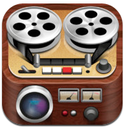
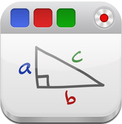
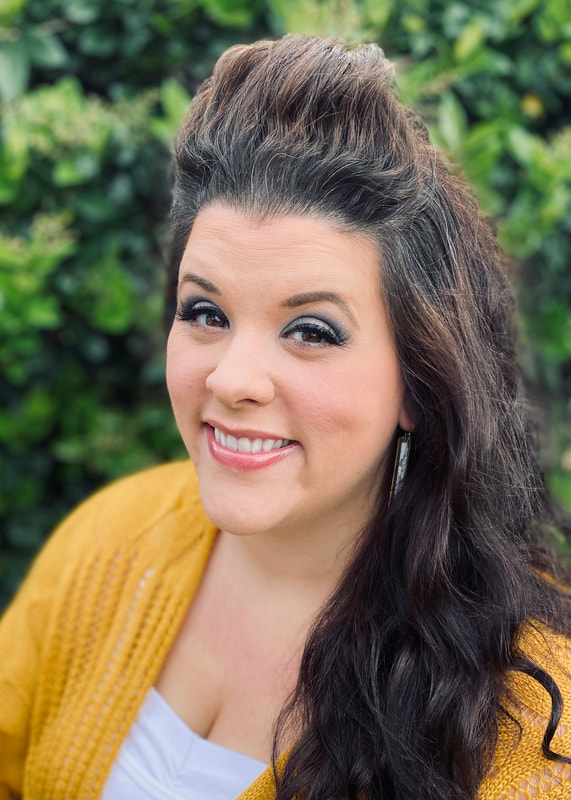
 RSS Feed
RSS Feed